CHAPTER VIII
您可以在百度里搜索“Now It Can Be Told 艾草文学(www.321553.xyz)”查找最新章节!
CHAPTER VIII
On the left, where the 8th and 10th Corps were directing operations, the assault had been delivered by the 4th, 29th, 36th, 49th, 32nd, 8th, and 56th Divisions.
The positions in front of them were Gommecourt and Beaumont Hamel on the left side of the River Ancre, and Thiepval Wood on the right side of the Ancre leading up to Thiepval Chateau on the crest of the cliff. These were the hardest positions to attack, because of the rising ground and the immense strength of the enemy's earthworks and tunneled defenses. But our generals were confident that the gun power at their disposal was sufficient to smash down that defensive system and make an easy way through for the infantry. They were wrong. In spite of that tornado of shell-fire which I had seen tearing up the earth, many tunnels were still unbroken, and out of them came masses of German machine-gunners and riflemen, when our infantry rose from their own trenches on that morning of July 1st.
Our guns had shifted their barrage forward at that moment, farther ahead of the infantry than was afterward allowed, the men being trained to follow close to the lines of bursting shells, trained to expect a number of casualties from their own guns—it needs some training—in order to secure the general safety gained by keeping the enemy below ground until our bayonets were round his dugouts.
The Germans had been trained, too, to an act of amazing courage. Their discipline, that immense power of discipline which dominates men in the mass, was strong enough to make them obey the order to rush through that barrage of ours, that advancing wall of explosion and, if they lived through it, to face our men in the open with massed machine-gun fire. So they did; and as English, Irish, Scottish, and Welsh battalions of our assaulting divisions trudged forward over what had been No Man's Land, machine-gun bullets sprayed upon them, and they fell like grass to the scythe. Line after line of men followed them, and each line crumpled, and only small groups and single figures, seeking comradeship, hurried forward. German machine-gunners were bayoneted as their thumbs were still pressed to their triggers. In German front-line trenches at the bottom of Thiepval Wood, outside Beaumont Hamel and on the edge of Gommecourt Park, the field-gray men who came out of their dugouts fought fiercely with stick-bombs and rifles, and our officers and men, in places where they had strength enough, clubbed them to death, stuck them with bayonets, and blew their brains out with revolvers at short range. Then those English and Irish and Scottish troops, grievously weak because of all the dead and wounded behind them, struggled through to the second German line, from which there came a still fiercer rattle of machine-gun and rifle-fire. Some of them broke through that line, too, and went ahead in isolated parties across the wild crater land, over chasms and ditches and fallen trees, toward the highest ground, which had been their goal. Nothing was seen of them. They disappeared into clouds of smoke and flame. Gunner observers saw rockets go up in far places—our rockets—showing that outposts had penetrated into the German lines. Runners came back—survivors of many predecessors who had fallen on the way—with scribbled messages from company officers. One came from the Essex and King's Own of the 4th Division, at a place called Pendant Copse, southeast of Serre. “For God's sake send us bombs.” It was impossible to send them bombs. No men could get to them through the deep barrage of shell-fire which was between them and our supporting troops. Many tried and died.
The Ulster men went forward toward Beaumont Hamel with a grim valor which was reckless of their losses. Beaumont Hamel was a German fortress. Machine-gun fire raked every yard of the Ulster way. Hundreds of the Irish fell. I met hundreds of them wounded—tall, strong, powerful men, from Queen's Island and Belfast factories, and Tyneside Irish and Tyneside Scots.
“They gave us no chance,” said one of them—a sergeant-major. “They just murdered us.”
But bunches of them went right into the heart of the German positions, and then found behind them crowds of Germans who had come up out of their tunnels and flung bombs at them. Only a few came back alive in the darkness.
Into Thiepval Wood men of ours smashed their way through the German trenches, not counting those who fell, and killing any German who stood in their way. Inside that wood of dead trees and charred branches they reformed, astonished at the fewness of their numbers. Germans coming up from holes in the earth attacked them, and they held firm and took two hundred prisoners. Other Germans came closing in like wolves, in packs, and to a German officer who said, “Surrender!” our men shouted, “No surrender!” and fought in Thiepval Wood until most were dead and only a few wounded crawled out to tell that tale.
The Londoners of the 56th Division had no luck at all. Theirs was the worst luck because, by a desperate courage in assault, they did break through the German lines at Gommecourt. Their left was held by the London Rifle Brigade. The Rangers and the Queen Victoria Rifles—the old “Vics “—formed their center. Their right was made up by the London Scottish, and behind came the Queen's Westminsters and the Kensingtons, who were to advance through their comrades to a farther objective. Across a wide No Man's Land they suffered from the bursting of heavy crumps, and many fell. But they escaped annihilation by machine-gun fire and stormed through the upheaved earth into Gommecourt Park, killing many Germans and sending back batches of prisoners. They had done what they had been asked to do, and started building up barricades of earth and sand-bags, and then found they were in a death-trap. There were no troops on their right or left. They had thrust out into a salient, which presently the enemy saw. The German gunners, with deadly skill, boxed it round with shell-fire, so that the Londoners were inclosed by explosive walls, and then very slowly and carefully drew a line of bursting shells up and down, up and down that captured ground, ravaging its earth anew and smashing the life that crouched there—London life.
I have written elsewhere (in The Battles of the Somme) how young officers and small bodies of these London men held the barricades against German attacks while others tried to break a way back through that murderous shell-fire, and how groups of lads who set out on that adventure to their old lines were shattered so that only a few from each group crawled back alive, wounded or unwounded.
At the end of the day the Germans acted with chivalry, which I was not allowed to tell at the time. The general of the London Division (Philip Howell) told me that the enemy sent over a message by a low-flying airplane, proposing a truce while the stretcher-bearers worked, and offering the service of their own men in that work of mercy. This offer was accepted without reference to G.H.Q., and German stretcher-bearers helped to carry our wounded to a point where they could be reached.
Many, in spite of that, remained lying out in No Man's Land, some for three or four days and nights. I met one man who lay out there wounded, with a group of comrades more badly hurt than he was, until July 6th. At night he crawled over to the bodies of the dead and took their water-bottles and “iron” rations, and so brought drink and food to his stricken friends. Then at last he made his way through roving shells to our lines and even then asked to lead the stretcher-bearers who volunteered on a search-party for his “pals.”
“Physical courage was very common in the war,” said a friend of mine who saw nothing of war. “It is proved that physical courage is the commonest quality of mankind, as moral courage is the rarest.” But that soldier's courage was spiritual, and there were many like him in the battles of the Somme and in other later battles as tragic as those. Now It Can Be Told




